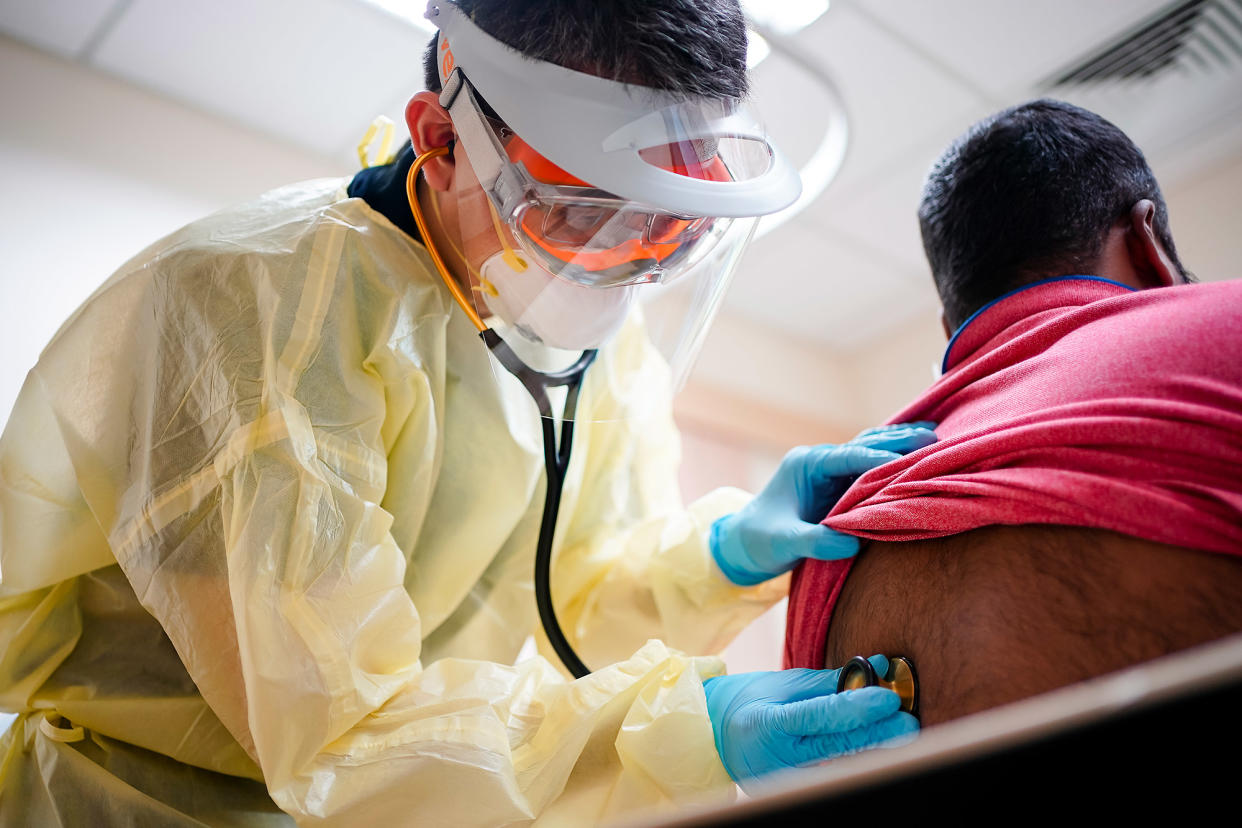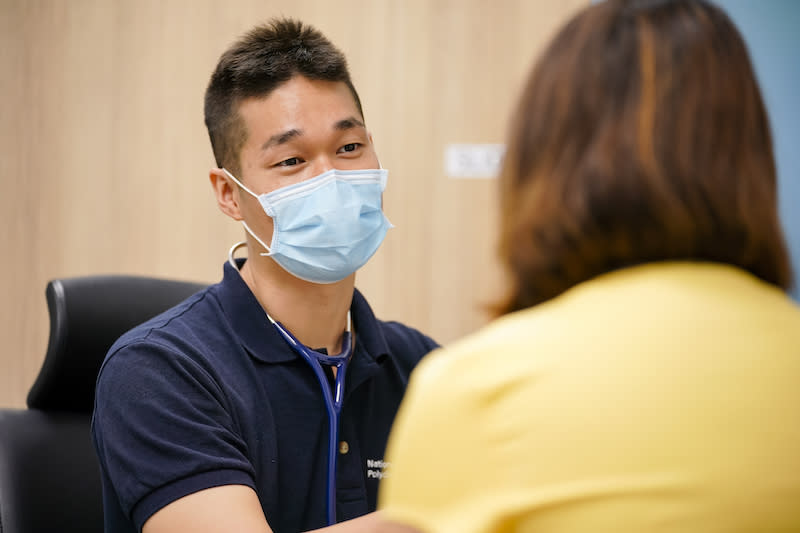Singapore doctors on COVID-19 frontlines feel safe, confident: new study

SINGAPORE — The Chinese national presented a puzzle for Dr Chua Ying Xian, 34, and his team who had been deployed to a migrant worker dormitory to screen workers for COVID-19. The team was also there to help manage any chronic medical conditions.
The worker had complained of a fever, stomach pains, headache and chest pains – but none of the symptoms really fit the profile of a coronavirus case. His vital signs were also good, while checks revealed that the man did not actually have a fever.
“Upon reflection and further questioning, he finally revealed that he was actually very stressed. He really couldn't communicate with his family back home for a prolonged period of time. So that also created more stress to him, as well as worry about whether he will lose his job (if he tested positive).”
The family physician and deputy head of Pioneer Polyclinic told Yahoo News Singapore that he is worried about the “mental stressors” that many migrant workers are subject to amid the pandemic. “It's no longer just about COVID, and it's no longer just about diagnosing them. It's about managing them for the long run.”
He added that mental health worries will also be an issue for the local population. “Just like any other chronic diseases, these will continue to pose a challenge for us in the coming months, when we do get better control over the COVID situation.”
Dr Chua is one of thousands of medical frontliners battling COVID-19 day after day – and a new study says primary care physicians (PCP) in Singapore like him have a high level of commitment to their work, as well as confidence in their work environment.
Some 216 PCPs took the online survey, which consisted of questions on work and non-work-related concerns, impact on personal and work life, level of pandemic preparedness, stress reduction factors, and personal coping strategies related to COVID-19.
Some 90 per cent felt safe with the equipment and support, and are prepared for the fight, while 93 per cent disagreed that they would leave their profession because of the risks of infection. About 91.9 per cent also accepted the risk of infection as part of the job and that patient care comes first.
The study is a collaboration between Yong Loo Lin School of Medicine, National University of Singapore, National University Polyclinics, National University Health System and College of Family Physicians of Singapore. It’s said to be the first study in the region examining the social and psychological impact of the COVID-19 outbreak on PCPs.

Like Dr Chua, Dr Hou Minsheng, 32, has been on the COVID-19 frontlines since Dorscon Orange was declared by authorities. Under the “orange” level of the Disease Outbreak Response System Condition (Dorscon), a disease is considered to be severe and spreads easily from person to person, but the disease has not spread widely in Singapore and is contained.
Alongside his colleagues, Dr Hou rotates regularly into the Red Zone at Choa Chua Kang Polyclinic. It is where patients who have had a history of fever or any respiratory tract symptoms are placed. The father of two spends up to eight hours a day swathed in Personal Protective Equipment, which includes a mask, goggles, surgical gown and cap.
Asked if the outfit feels claustrophobic, he agreed. “We to try to drink up before (putting on the PPE), but not too much, otherwise you have to keep going to the toilet. And at the same time, sometimes people do feel nauseous or unwell, so we will get them to de-gown and take a rest before (working) again.”
Alluding to how his goggles can mist up while decked out in PPE, Dr Hou explained the need to guard against “literally clouded judgement” while on duty. “When we are in the Red Zone, we have to keep a high level of vigilance for alternative diagnosis because not everybody who comes in with fever or respiratory symptoms has COVID.”
One particular patient presented with a fever, as well as shortness of breath and chest pains. “We did an ECG and we found that it was a serious form of heart attack and we immediately activated an ambulance to bring him to the hospital, where he received an emergency balloon and stent,” he recalled.
Dr Hou has also become extra cautious about hygiene - on days when he is in the Red Zone, he brings a separate change of clothes to work. Once home, he washes his hands, puts his dirty clothes in a separate laundry load and showers before he interacts with his family. “Sometimes, I feel a heartache. The first thing I would normally do otherwise, when I come home is to give them a hug, greet my wife and my children and talk to them.”
Both Dr Chua and Dr Hou admitted to feeling anxious at the start of the outbreak, when little was known about the coronavirus or its modes of transmission. “I would say that I'm glad to have been placed where I am now, to be able to serve my community this way,” said Dr Hou.
“So, over and above the little bit of anxiety is just being in a privileged position to do this at this point in time. I'm actually grateful for the opportunity. And I think these sentiments are shared by most of my colleagues.”
Stay in the know on-the-go: Join Yahoo Singapore's Telegram channel at http://t.me/YahooSingapore
Related stories:
COVID-19: Singapore reports 305 more cases, 495 additional recoveries
No known cases of COVID-19 re-infection in Singapore: NCID official
COVID-19: Robertson Quay restaurants told to stop selling takeaway booze



